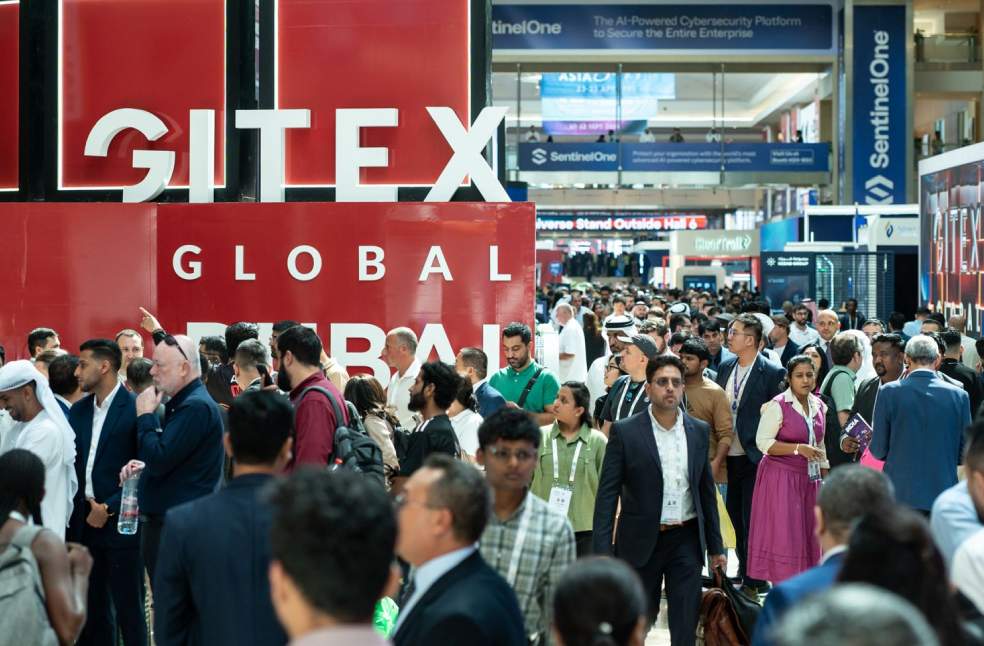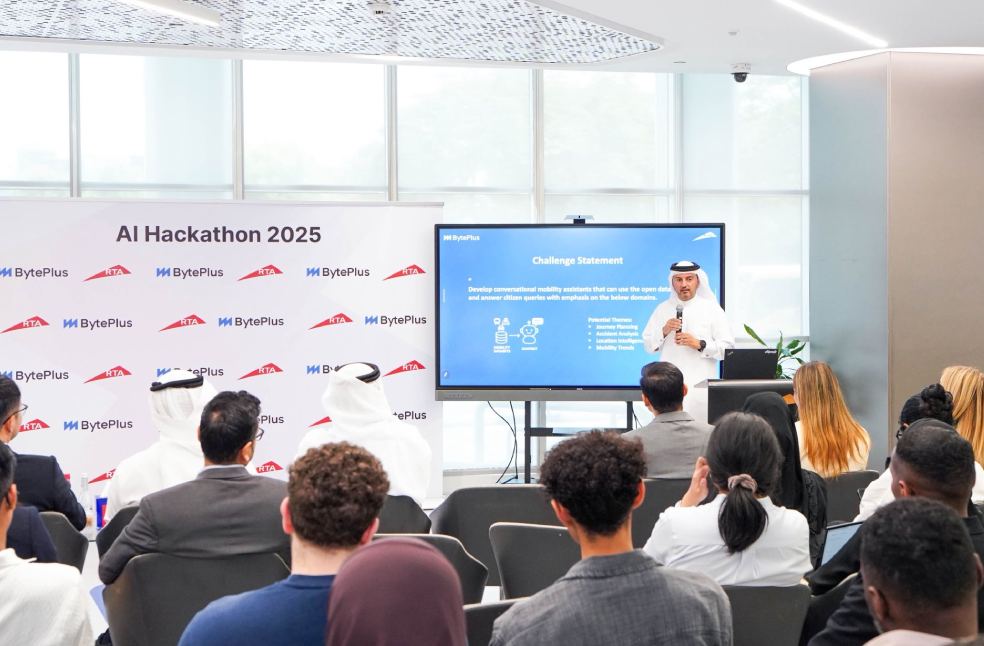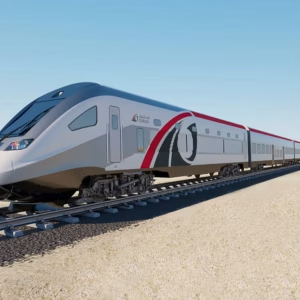The Sharjah Digital Hackathon 2025 is rapidly emerging as one of the most important platforms for technological innovation in the UAE. The event, designed to unite young talents, experts, and government entities, focuses on harnessing artificial intelligence AI to improve infrastructure and urban development. With a strong emphasis on creativity, problem solving, and collaboration, the hackathon serves as a hub for innovative ideas that could transform the way cities are designed and managed.
This hackathon is more than just a competition it is a visionary initiative aimed at integrating AI into the infrastructure sector to create smarter, more efficient, and sustainable urban environments. By providing participants with mentorship, resources, and networking opportunities, the event encourages solutions that can have a lasting impact on communities across the UAE.
The Vision Behind the Hackathon
The Sharjah Digital Hackathon 2025 is part of Sharjah’s ambitious plan to position itself as a leader in digital transformation. The UAE has made tremendous strides in technology adoption, and events like this demonstrate a strong commitment to shaping a future driven by AI and innovation.

The core vision of the hackathon is to tackle real world challenges in urban development, infrastructure, and public service management through innovative AI solutions. It encourages participants to think creatively while aligning their projects with sustainability goals, technological advancement, and efficiency in urban planning.
AI is increasingly becoming a central tool for improving infrastructure management. From traffic control and energy optimization to predictive maintenance and disaster management, the possibilities are vast. The hackathon leverages this potential to inspire practical solutions that can be implemented on a large scale.

Core Themes of the Sharjah Digital Hackathon 2025
The hackathon revolves around four main themes, each critical for future ready cities
AI Powered Infrastructure
The event encourages participants to develop intelligent systems that can optimize urban planning, transportation, and resource allocation. AI powered infrastructure can anticipate city needs, reduce congestion, and enhance operational efficiency. Participants are challenged to design solutions that incorporate machine learning, predictive analytics, and real time data to create smarter city networks.
Sustainability and Green Technologies
Sustainability is a core focus of the UAE’s development strategy, and the hackathon reflects this commitment. Participants are encouraged to devise AI driven solutions that promote environmental conservation, reduce energy consumption, and support the use of renewable resources. This includes technologies for energy efficient buildings, smart grids, waste management systems, and sustainable water usage.
Smart Governance
AI can significantly enhance the efficiency and transparency of public services. Hackathon participants explore solutions that streamline government processes, improve citizen engagement, and enable better decision making. By integrating AI into governance, cities can provide more responsive and effective services, creating a stronger bond between authorities and communities.
Cyber Resilience
As cities become increasingly digital, cybersecurity becomes a critical concern. The hackathon emphasizes building robust infrastructures capable of withstanding cyber threats while ensuring continuous operation. This includes AI powered monitoring systems, real time threat detection, and predictive algorithms that can anticipate vulnerabilities before they cause disruption.
Structure and Activities
The Sharjah Digital Hackathon 2025 is carefully structured to provide a holistic learning experience for participants. It includes a combination of workshops, mentorship, teamwork, and pitching sessions
Workshops and Training
Participants receive hands on training in AI technologies, design thinking, and solution prototyping. These sessions aim to equip innovators with the knowledge and skills required to transform ideas into functional projects. Practical workshops also introduce participants to industry standard tools, frameworks, and programming languages.
Mentorship
A team of industry experts, academics, and professionals provides guidance throughout the hackathon. Mentors play a vital role in helping teams refine their concepts, improve technical implementation, and prepare for presentations. This support ensures that participants gain practical insights into real world applications of AI in infrastructure.
Collaborative Teamwork
The hackathon emphasizes interdisciplinary collaboration. Teams often include individuals from diverse backgrounds, such as engineering, data science, design, and urban planning. By combining different perspectives, participants can develop comprehensive solutions that address multiple facets of infrastructure and urban challenges.
Pitching and Presentation
The final stage of the hackathon involves presenting solutions to a panel of judges, who assess the projects based on creativity, feasibility, and potential impact. This step enhances participants’ communication skills and encourages them to articulate their ideas effectively.

Benefits for Participants
The Sharjah Digital Hackathon 2025 provides participants with numerous benefits beyond competition
- Skill Development: Participants gain experience in AI applications, software development, and problem solving
- Networking Opportunities: The hackathon connects participants with professionals, entrepreneurs, and potential investors
- Career Advancement: Successful projects may lead to internships, job offers, or opportunities to implement solutions in real world scenarios
- Recognition: Winning teams receive awards and acknowledgment that can significantly boost their credibility and professional portfolio
By fostering these opportunities, the hackathon cultivates a generation of innovators ready to shape the future of AI driven infrastructure.
The Role of AI in Infrastructure Development
AI is revolutionizing how cities plan, operate, and maintain infrastructure. Its applications include
- Predictive Maintenance: AI can detect potential issues in infrastructure, such as roads, bridges, and utilities, before they become critical problems
- Traffic Management: AI algorithms analyze traffic patterns to optimize flow, reduce congestion, and improve safety
- Energy Efficiency: AI systems monitor energy usage, optimize consumption, and integrate renewable sources effectively
- Smart Utilities: From water distribution to waste management, AI ensures that essential services are managed efficiently
The Sharjah Digital Hackathon 2025 provides a platform for innovators to explore these possibilities and design solutions that can be implemented in cities worldwide.
Impact on Communities
The hackathon’s influence extends beyond participants. AI driven infrastructure solutions have the potential to
- Improve quality of life by reducing congestion and enhancing public services
- Promote sustainability through efficient use of resources
- Increase safety through advanced monitoring and predictive technologies
- Foster economic growth by enabling smarter cities that attract investment and innovation
By encouraging AI driven solutions, the event directly contributes to building smarter, more resilient, and sustainable communities.
Challenges and Opportunities
While AI offers enormous potential, integrating it into infrastructure comes with challenges
- Data Privacy: Handling large datasets must ensure privacy and security
- Technical Expertise: Implementing AI solutions requires skilled professionals and continuous training
- Cost Considerations: High initial investment may be required for AI driven infrastructure projects
- Scalability: Solutions must be adaptable to different cities and contexts
The hackathon encourages participants to address these challenges creatively, ensuring their solutions are practical, scalable, and effective.

Inspiring Innovation and Collaboration
The Sharjah Digital Hackathon 2025 inspires participants to think beyond conventional approaches. By combining creativity with technical knowledge, teams can develop solutions that make a tangible impact. Collaboration plays a crucial role, as interdisciplinary teams bring fresh perspectives and novel ideas.
The event also fosters a culture of innovation among youth, motivating them to pursue careers in technology, data science, and urban planning. By nurturing young talent, Sharjah strengthens its position as a hub for innovation in the region.
Future of AI Driven Cities
The success of initiatives like the Sharjah Digital Hackathon 2025 highlights the transformative potential of AI in urban development. Cities that integrate AI effectively can
- Enhance sustainability and reduce environmental impact
- Improve efficiency in public services and infrastructure management
- Strengthen resilience against cyber and natural threats
- Foster inclusive growth and citizen engagement
By investing in AI talent and solutions, Sharjah is setting a precedent for smart city development not only in the UAE but globally.
Conclusion
The Sharjah Digital Hackathon 2025 is more than just a competition. It is a platform for innovation, collaboration, and skill development. By focusing on AI applications in infrastructure, the event empowers young innovators to create solutions that can significantly improve urban life.
Through mentorship, workshops, teamwork, and real world problem solving, participants gain invaluable experience while contributing to Sharjah’s vision of a smart, sustainable, and technologically advanced city. The hackathon reflects the UAE’s commitment to digital transformation and positions the nation as a leader in AI driven infrastructure development.
As AI continues to reshape the world, events like the Sharjah Digital Hackathon 2025 will play a pivotal role in preparing the next generation of innovators to lead the way. With creativity, technology, and collaboration, the future of smart cities is being written today.
Do follow UAE Stories on Instagram
Read Next – Abu Dhabi Housing Authority Expression of Interest: A New Era for Citizen Housing Selection














